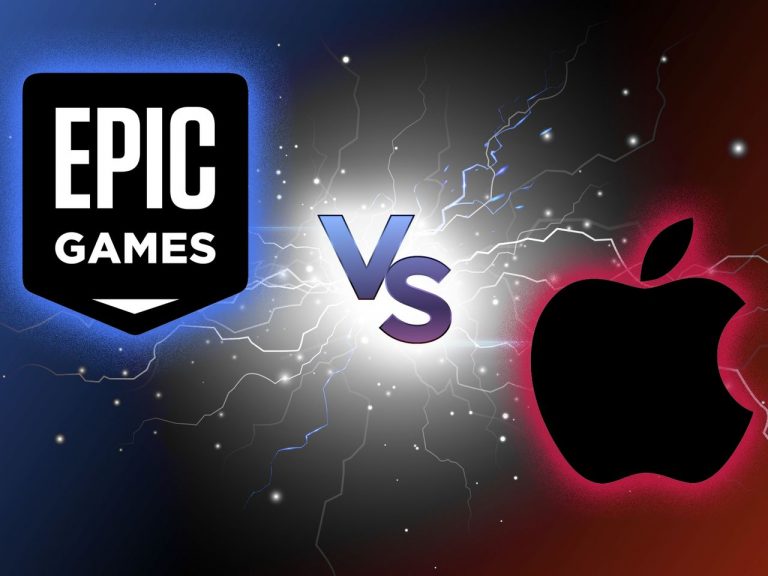
Apple on Wednesday suffered a significant legal setback after a U.S. federal appeals court denied its bid to delay enforcement of a court order that threatens to upend the company’s grip over its App Store ecosystem.
The 9th U.S. Circuit Court of Appeals rejected Apple’s request to pause key provisions of a ruling by U.S. District Judge Yvonne Gonzalez Rogers, ordering the iPhone maker to immediately allow more competition within the App Store.
The order, which Apple must now comply with while its appeal moves forward, forces the company to eliminate practices the court found were designed to circumvent an earlier injunction issued in its antitrust fight with “Fortnite” developer Epic Games.
Register for Tekedia Mini-MBA edition 19 (Feb 9 – May 2, 2026).
Register for Tekedia AI in Business Masterclass.
Join Tekedia Capital Syndicate and co-invest in great global startups.
Register for Tekedia AI Lab.
Apple responded by expressing disappointment with the decision, saying: “We are disappointed with the decision not to stay the district court’s order, and we’ll continue to argue our case during the appeals process.”
However, the appellate court’s refusal to freeze the lower court’s ruling means Apple must now begin allowing developers to direct users to alternative payment systems outside the App Store—something it had long resisted.
A Battle Years in the Making
The legal clash between Apple and Epic dates back to 2020 when the game developer filed suit accusing Apple of monopolistic practices. Epic challenged Apple’s longstanding rules that force iOS developers to distribute their apps exclusively through the App Store and use Apple’s payment system, which carries a commission of up to 30%. Epic argued that these rules harmed developers and inflated prices for consumers.
The lawsuit escalated after Epic intentionally bypassed Apple’s in-app payment system for “Fortnite,” prompting Apple to remove the game from the App Store. That act set off a high-stakes courtroom drama with broader implications for the tech industry.
In 2021, Judge Gonzalez Rogers ruled that Apple did not hold an illegal monopoly but nonetheless ordered the company to allow developers to direct users to alternative purchasing options—a move aimed at ending what she described as anticompetitive conduct.
Rather than fully complying, Apple introduced a 27% “steering” fee on developers who encouraged users to pay outside the App Store. It also placed strict limits on where and how developers could include external payment links. In April 2024, the court found Apple in contempt of the original order.
Judge Gonzalez Rogers, in her April 30 ruling, said Apple “defied” the earlier injunction in order to protect billions of dollars in App Store revenue. She further accused Apple of misleading the court about its efforts to comply and referred the company and one of its executives to federal prosecutors for possible criminal contempt.
The appeals court’s refusal to block the ruling compels Apple to reverse the contested practices and open its platform in ways it has long resisted.
A Major Win for Epic—and Developers
The court’s decision marks a major win for Epic Games and other developers that have fought Apple’s tight control over iOS app distribution and payment flows. Epic CEO Tim Sweeney celebrated the outcome, posting on X: “The long national nightmare of the Apple tax is ended.”
Epic argued that Apple’s resistance to meaningful reform was simply a continuation of its efforts to suppress competition and extract excessive fees from developers. Since Judge Gonzalez Rogers’ April ruling, Epic noted, developers had already started updating apps with more competitive payment methods, offering users better deals and choices.
While Apple maintains that its rules are necessary for platform integrity and security, critics say they’ve enabled the company to extract unjustified revenue from a closed marketplace. Developers have increasingly voiced frustration with what they see as exploitative policies and the legal ruling is now seen as a breakthrough in leveling the playing field.
What Comes Next?
Apple’s appeal is still underway, and the legal battle is far from over. But for now, the ruling significantly weakens Apple’s ability to enforce App Store exclusivity and marks a pivotal moment in the broader debate over digital marketplaces.
The decision could have ripple effects across the tech industry, as regulators in the U.S., Europe, and other jurisdictions scrutinize app store policies, and developers push for more freedom in how they reach and transact with users. Apple will now have to deal with the pressure from a developer community emboldened by the latest ruling.



